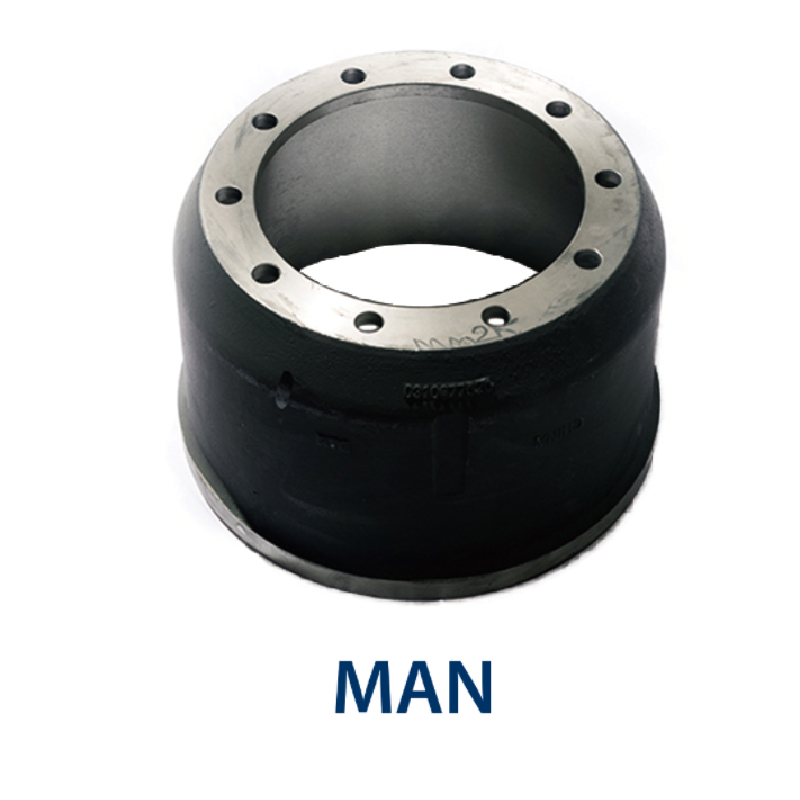2 月 . 14, 2025 18:08 Back to list
what happens when your brake drums get very hot
Braking systems are critical components in any vehicle, serving as the primary means to ensure safety while driving. Among the varied components of braking systems, drum brakes are prevalent, especially in older vehicle models and budget-friendly vehicles. When brake drums overheat, it can lead to alarming consequences, affecting driving efficiency and safety.
Preventive Measures and Solutions The longevity and efficient operation of brake drums depend on proper maintenance and driving habits. Regular inspection of brake systems for wear and tear is essential. Check for any leaks in the brake system as they can indirectly cause overheating by reducing the system’s efficiency. Opt for quality brake components known for their heat dissipation properties to ensure longevity and safety. Practicing safe driving habits can significantly reduce the risk of overheating. Avoid excessive heavy braking, especially during downhill driving, and instead use engine braking. It's also prudent to allow the brakes to cool down after extensive use, such as after driving down a long incline or after intense stop-and-go traffic. Expert Insights on Handling Overheated Brake Drums Engage with professional auto mechanics if you face brake overheating issues. A seasoned mechanic can provide precise diagnostics and recommend the right adjustments or replacements. They might suggest upgrading to a brake system that combines both disc and drum brakes for more balanced thermal dissipation. Additionally, investing in high-quality brake fluid with a higher boiling point can prove beneficial in managing heat conditions. In conclusion, the repercussions of overheated brake drums underscore the critical need for regular vehicle maintenance and conscious driving practices. By putting measures in place to mitigate heat build-up and attending promptly to signs of overheating, drivers can enhance safety and extend the lifespan of their brake systems.


Preventive Measures and Solutions The longevity and efficient operation of brake drums depend on proper maintenance and driving habits. Regular inspection of brake systems for wear and tear is essential. Check for any leaks in the brake system as they can indirectly cause overheating by reducing the system’s efficiency. Opt for quality brake components known for their heat dissipation properties to ensure longevity and safety. Practicing safe driving habits can significantly reduce the risk of overheating. Avoid excessive heavy braking, especially during downhill driving, and instead use engine braking. It's also prudent to allow the brakes to cool down after extensive use, such as after driving down a long incline or after intense stop-and-go traffic. Expert Insights on Handling Overheated Brake Drums Engage with professional auto mechanics if you face brake overheating issues. A seasoned mechanic can provide precise diagnostics and recommend the right adjustments or replacements. They might suggest upgrading to a brake system that combines both disc and drum brakes for more balanced thermal dissipation. Additionally, investing in high-quality brake fluid with a higher boiling point can prove beneficial in managing heat conditions. In conclusion, the repercussions of overheated brake drums underscore the critical need for regular vehicle maintenance and conscious driving practices. By putting measures in place to mitigate heat build-up and attending promptly to signs of overheating, drivers can enhance safety and extend the lifespan of their brake systems.
Latest news
-
Brake Drum for Kamaz Trucks Durable OEM Replacement & High Performance
NewsMay.30,2025
-
Brake Drum Man High-Quality Drum Brake & Shoe Solutions
NewsMay.30,2025
-
High-Performance Brake Drum for Kamaz Trucks Durable Drum Brake Components
NewsMay.29,2025
-
Brake Drum Man High-Quality Drum Brake Drums & Brake Shoes
NewsMay.29,2025
-
Brake Drum MAZ High-Performance & Durable Replacement Parts
NewsMay.29,2025
-
heavy truck brake drums
NewsMar.07,2025
